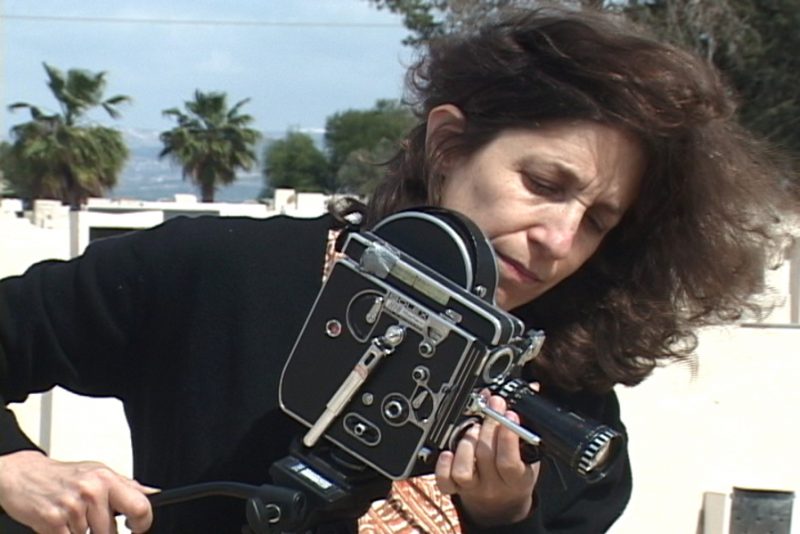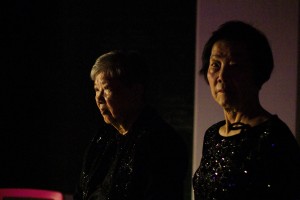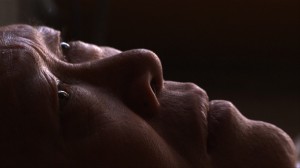Exclusive Interview with Filmmaker Lynne Sachs
In Their Own League
By Bianca ‘Bee’ Garner
July 17, 2020
https://intheirownleague.com/2020/07/17/exclusive-interview-with-filmmaker-lynne-sachs/
Lynne Sachs is an extraordinary filmmaker with a distinct and unique approach to documentary filmmaking. Each one of her films is an exploration into a secret hidden world as well as an experiment with the medium of visual storytelling. Currently, the Sheffield Documentary Film Festival is running a ‘Directors in Focus’ showcase of Sachs’ work where you can catch pieces like “Your Day is My Night”, “The Washing Society” and her latest film “Film About a Father Who”.
It’s been a real delight to explore Sachs’ work as part of the festival and when the opportunity arose to speak to Lynne personally, I jumped at the chance. Here’s our interview where we discuss how she approaches documentary filmmaking, her friendship with Barbara Hammer and the art of editing.
Bianca: Hello Lynne, lovely to chat to talk. I just want to say how much I’ve enjoyed exploring your work as part of the Sheffield Doc Fest “Directors in Focus”, you have such an unique approach to filmmaking. I find it to be this unusual blend of traditional documentary style filmmaking meets the avant-garde artistic style of filmmaking of allowing imagery and sound to tell the stories. How did you develop this approach and style of filmmaking, and what was it about documentary filmmaking that appealed to you as a filmmaker?
Lynne: I’ll guess I’ll start by admitting that I don’t even know if I would be able to make a traditional documentary, that might be because of when I invest myself into an investigation or a story I take such a deep dive and I am always looking for a visual or an oral method by which I can comment on that particular theme in a way that hasn’t been done before. Sometimes it’s the topic that guides me.
The more conventional approach would be to have a template or a formula or maybe even a time-limit like 58 minutes so you would have time for the commercial breaks, then you would take your subject and frame it by those expectations. However, that approach never really interested me and I wonder whether I have the skill or the commitment to do that style of filmmaking.
My desire to work in the documentary realm came from a convergence of the love of art and the love of politics. My background was as an undergraduate in history, I never expected to be an academic historian but it feeds my way of thinking. I wanted my creative juices to fly but the limitations of being a historian weren’t appealing to me.
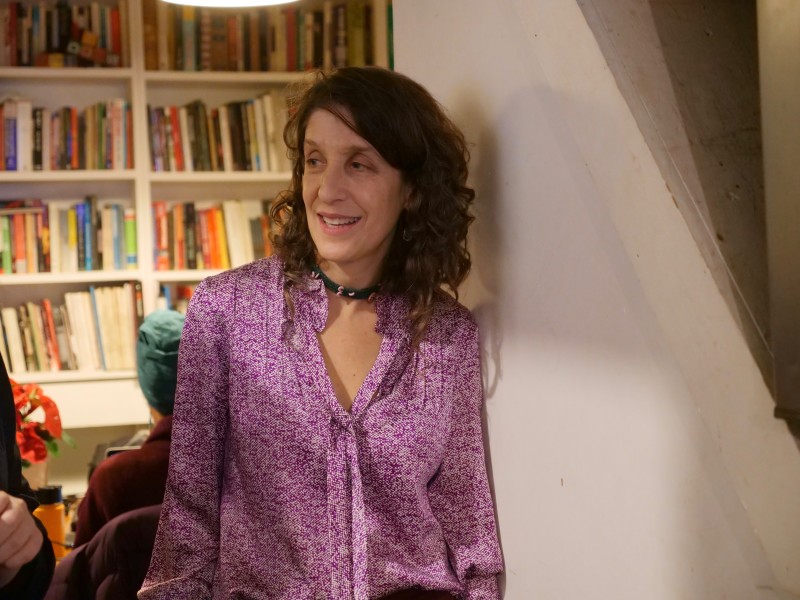
Bianca: Did you always strive to have a personal connection with the people and the subjects you film?
Lynne: It’s very important to me to have a complex relationship with the people in my film, just like the one I would have normally with a friend. It takes work, and often in the field of filmmaking there’s the sense of jumping in as quickly as possible then leaving. You actually leave with this gift: the interaction you had with the people you filmed. You then own that gift, but those people don’t have that anymore. I think the whole process has to take a whole circle where you work to find the right participants for your film, you work on that film and then you come back to them after completion and during distribution.
With “Your Day is my Night” we worked on that film for a couple of years and it became a live performance and I was bringing the people from Chinatown, to places in New York City where they hadn’t been before. I was organising cars for them as they were older people and we couldn’t expect them to travel via Subway. I wanted them to experience that pleasure, and two years after we had finished shooting we took the film and the live performance to a public library in Chinatown where we had an afternoon matinee where all of their friends came.
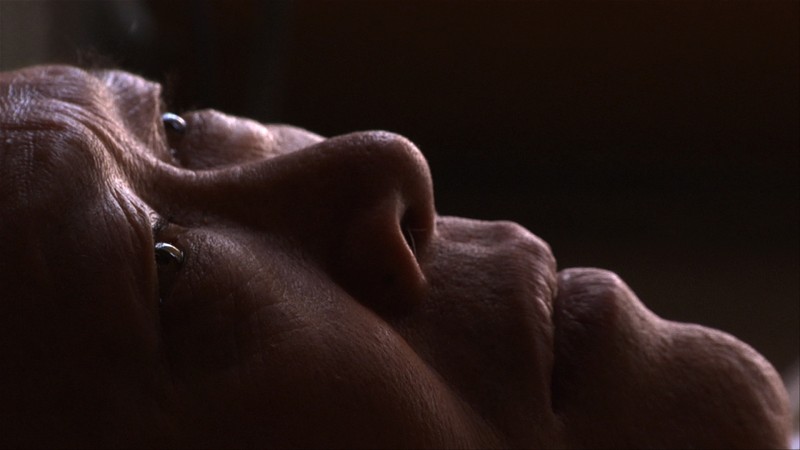
It was actually quite a sad moment because one of the participants in the film had died since we made the film, so when his face came up in the film everyone in the audience started crying. So, it was a memorial for him in a way. There are ways films can function outside the function of building your career or taking you to film festivals. I really feel committed about the idea of having movies been shown on all different kinds of screens.
Bianca: People often overlook the importance of sound and audio in filmmaking because film is a visual medium. What I find fascinating about your films is that often the audio doesn’t always match up to what’s being depicted on-screen. I think this is brilliantly showcased in your latest film “Film About a Father Who” where we see one version of your father being shown but the narration is discussing a different aspect of his character.
Lynne: I just want to touch on something I hadn’t thought about, the formal connection between the way you understand a human being and the way that film works, and how you process what you see and what you later discover. I think that’s very particular to this medium. We have this notion that the visual and the sound should be married but we all know that marriage is just an agreement that can fall apart. It’s through that use of ‘falling apart’ where we begin to see that what something appears like isn’t actually what it is in reality, and we build in doubt.
I think doubt should be a part of any filmmaking experience, whether you’re talking about fiction or non-fiction, do we believe the ideology that is intact. If you’re a doubtful viewer in any way then you start to engage with it in a deeper way, you start to question everything and as a result you become more intellectually engaged. What I wanted to say about “Film About a Father Who” that there were times where maybe I was uncomfortable in a situation where I did have doubts, but I wanted to believe that things were more acceptable than they actually were and worked with how I thought a father should be.
If you think about the foundations of who we think we are as children and the notions of how we fit into that micro community it’s usually pretty transparent. However, maybe that’s no longer the case today. I used to think my family was very atypical, but now that I’ve screened the film quite a lot of people have either come up to me or written to me to share their own experiences. I think our notions of family are now more evolved than how it was when I was a kid.
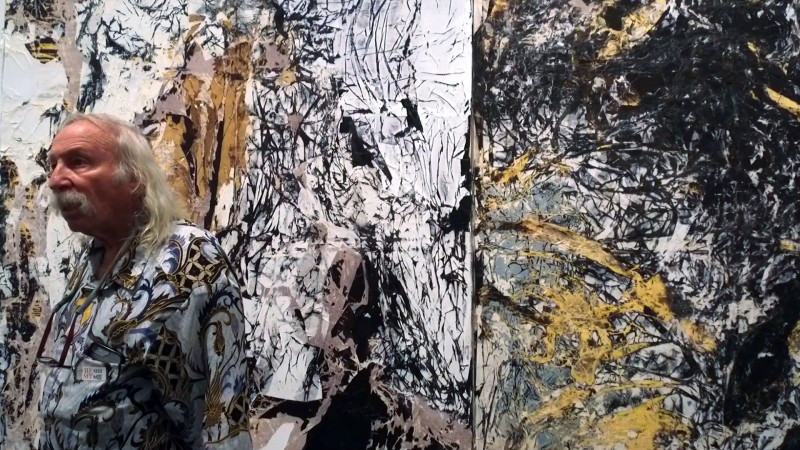
Since making the film I’ve been able to have some really profound conversations with those who have watched it. Whether or not it’s your mother or father who have secrets it’s their way of protecting themselves, but it also leaves an imprint on us and we’re left with a sense of confusion about how we’re supposed to process this new information and emotions.
Bianca: The impression I got from your film was that this was not only a self-discovery for you but also a self-discovery of who your father is. It was a self discovery of a family too.
Lynne: It took me a year of going through all the videos and super-8 films and I realise I had a lot of content about my father. The traditional approach to documentary filmmaking is that you take all the footage and make a character so people leave the movie thinking they really know that person. I thought about whether that was what I really wanted to do, as what I was really interested in was the interrelationships between people and the way we yearn for a part of our parents in ourselves and how we are always looking for stability. I know I have very distinct relationships with my parents and I value that in its own way.
Bianca: What’s something you want the viewer to take away from “Film About a Father Who”?
Lynne: I’m very interested portraying the layers of expression especially in terms of being a woman, that include your anger and your rage as well as your ability to integrate forgiveness because I think it’s very hard to go on living your life if you hold onto the pain of your own rage. Forgiveness isn’t about saying that something didn’t happen, there are parts in my film where I realise that I’ve become very good at training myself to have forced amnesia. If you can find forgiveness and realize that the person who hurt you or made mistakes, made those mistakes because of the things they went through themselves that can help you move forward.
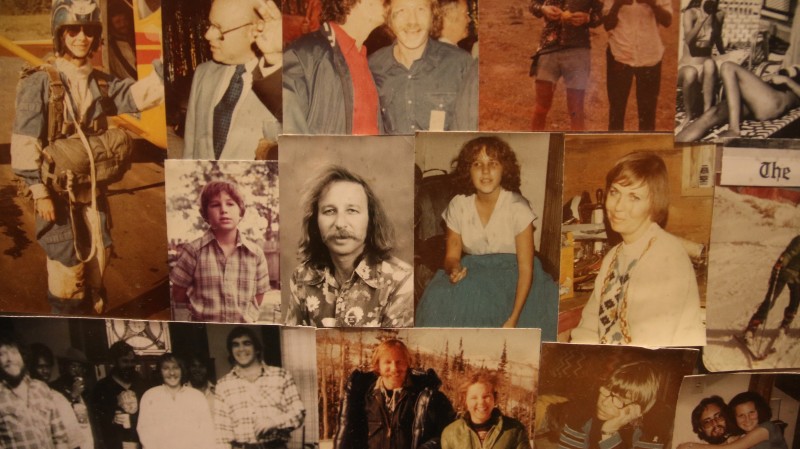
I am also interested in showing my family’s story so others can investigate their own stories. I showed the film to a group of fifteen men in their 80s who were in a fraternity with my father and all idolised him. After the film, they said to me that they wished their daughters had made a film about them which surprised me. I think it was because the film elevated my dad to a full person and his entire life was told. He came to the premiere in New York and he was happy with the film. And he’s told me that he wants to do better in the future.
Bianca: Another recent film of yours is “A Month of Single Frames”, a beautiful collaboration with the late filmmaker Barbara Hammer. How did that film come around?
Lynne: I met Barbara in the late ‘80s as we were both in San Francisco during that time. At that time and well into the 1990s, San Francisco was a mecca for experimental filmmakers. I think that’s the place where my style really evolved as it’s not a commercial film centre like New York or Los Angeles. There was a place called the Film Arts Foundation where you could go and learn different skills or edit your films on a 16mm flatbed and Barbara was there teaching a class. I took a weekend class with her and we hit it off! We became friends and both ended up moving to New York City.
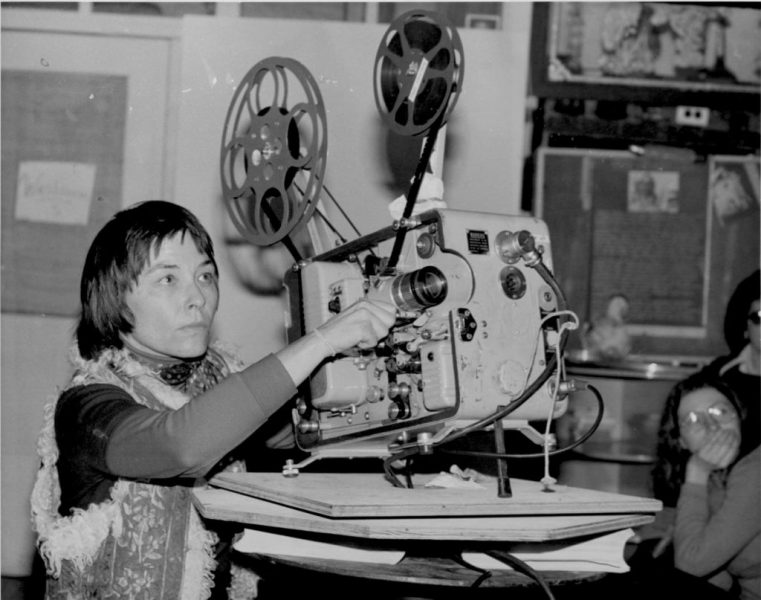
Twelve years ago, Barbara found out she had ovarian cancer. She was going through chemotherapy and we would take meals to her and talk to her. She actually lived a lot longer than she thought she would. During that time we became deep friends, and I think she appreciated that me and my husband (Mark Street) were not intimidated by the word ‘cancer’. She asked Mark and me to make a film with the material she gave us when she saw her life coming to an end.
When she gave me the footage she hadn’t told me she’d also kept a journal. Her health was declining but she was quite active in terms of filmmaking in her last year, so I had to squeeze in my visits with her between chemotherapy and her trips to the Berlin Film Festival for a premiere of a film she made. And, when she went to Berlin in 2018 she lost one of her vocal chords so when we were recording her narration for the film we had to use an amplifier. What’s amazing about making a film is that it’s a sustained experience and a gift with that person you’re collaborating with. It was also a gift in the sense that we could share all that time together.
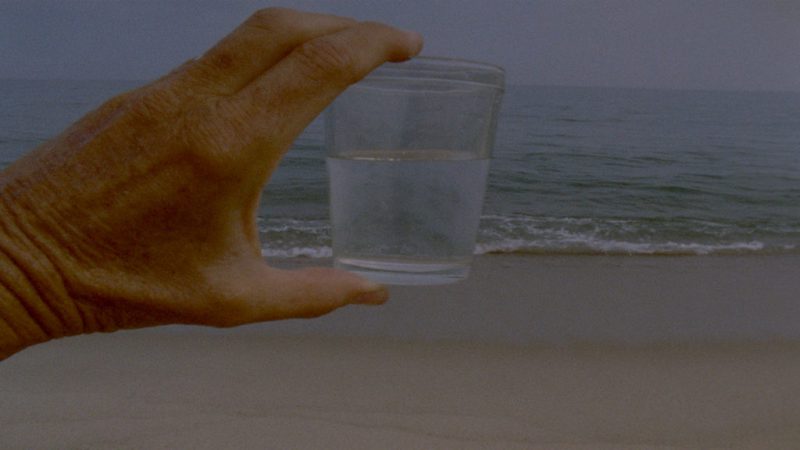
Barbara passed away in March 2019, and I’d hadn’t yet written the text you see in the film. I really wanted a way so you could dive into the film on a personal level, and on a level where I could be talking to her, the audience, the Earth, to the future and to anyone who could be watching the movie. What’s so specific about film, that it can transport you back in history but can also propel you forward in time too. I wanted there to be an active presence which is why I talk to the audience.
Bianca: That’s what is so special about “A Month of Single Frames” is that feeling of conversation between you, the audience and Barbara. In the way it felt like therapy and a precious way of capturing someone’s memory.
Lynne: We think of film as a closed system where you enter it but you don’t affect it although it may affect you in a psychological way. I wanted that system to be more open, the screen is no longer a closed system.
Bianca: Do you think we’ve lost something special about the art of shooting on film compared to how we now seem to shoot everything on digital, especially in terms of the craft of editing?
Lynne: It’s funny that you mention editing because it made me recall Dziga Vertov’s “The Man With a Movie Camera” because many people believe that the director’s wife (Yelizaveta Ignatevna Svilova) really made the film, I believe her work helped give the film it’s rhythm. There’s an image of her in the film where she’s sat at the editing table and she looks like she’s sewing. This image reminds us that analogue film was constructed in a method that was very identified with women. There has been a revived interest in the materialistic qualities of the medium and the fact you can go from something three-dimensional to something two-dimensional.
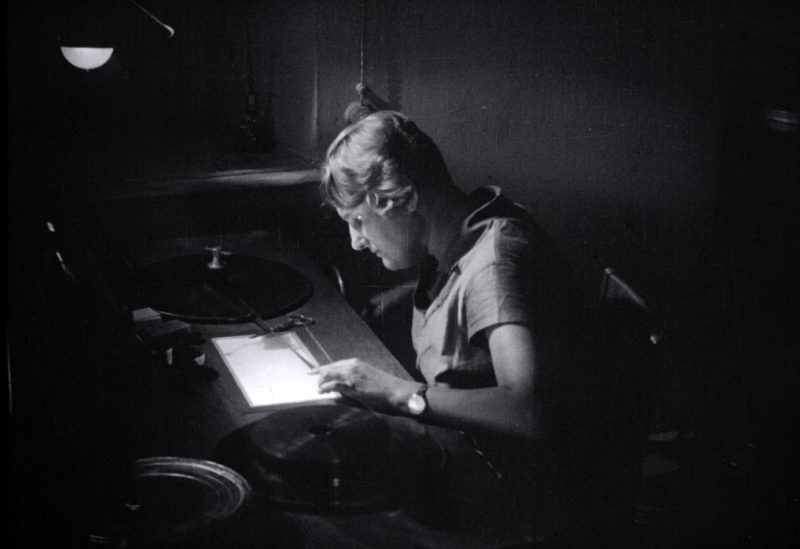
In terms of my own filmmaking, “Which Way is East” was shot all on film and so was “A Month of Single Frames” and “The Last Happy Day” was digital and film. It’s a real mix. In terms of the images I shoot on Super-8 and 16mm, well I just like them better. Digital can be so pristine. There’s a sense of physicality to analogue film. Sometimes you see a strand of hair or dust, and that’s part of the real world that we’ve left behind like a fossil.
“Film About a Father Who” is to be screened in Sheffield in Autumn, and online on Sheffield Doc/Fest Selects in parallel. The Filmmaker Focus- retrospective films are streaming now in the UK and their accessibility has been extended through August 31st.
Please see: https://selects.sheffdocfest.com/bundle/lynne-sachs-focus/


